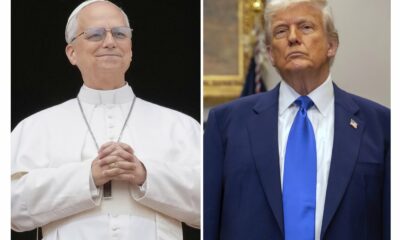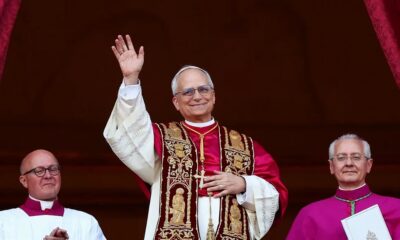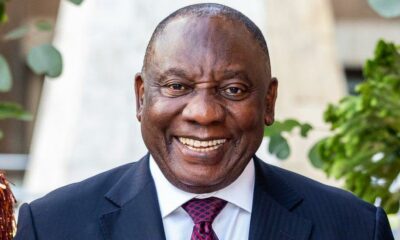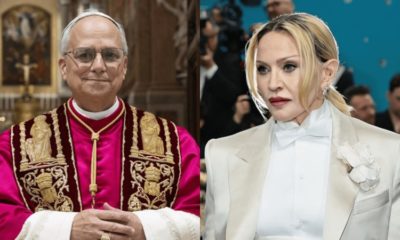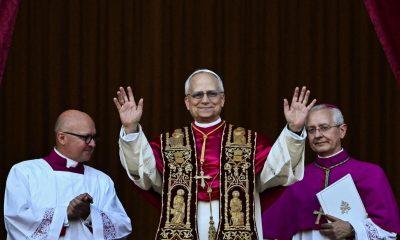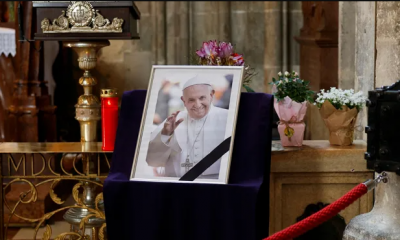411
Pope Leo XIV: The ‘Latin Yankee’ Who Bridges Continents and Ideologies

In a historic and symbolic shift for the Catholic Church, Cardinal Robert Prevost of Chicago has been elected pope, taking the name Pope Leo XIV. He is the first American-born pope and brings with him a truly global perspective shaped not by political power or institutional tradition, but by decades of missionary work in Latin America and a commitment to social justice.
Affectionately known in Rome as the “Latin Yankee,” Leo XIV defies the conventional image of an American pope. After spending more than 20 years serving the poor and marginalized in Peru—where he even became a naturalized citizen—his papacy signals a desire by the Church to find unity across divisions and embrace a broader worldview.
A Pope with Missionary Roots
Although born and raised in Chicago’s South Side, Prevost’s heart has long beat for the people of Latin America. His service in Peru wasn’t just a temporary mission—it was a life-altering commitment that informed his entire vision for the Church.
“I still consider myself a missionary,” Pope Leo XIV told Vatican News. “My vocation, like that of every Christian, is to be a missionary, to proclaim the Gospel wherever one is.”
This sense of service defined his tenure as bishop of Chiclayo and as the leader of the powerful Vatican Dicastery for Bishops, where he played a crucial role in selecting bishops around the world.
Carrying Forward Pope Francis’s Legacy
Leo XIV is widely seen as a continuation of Pope Francis’s progressive yet pastoral approach. Both leaders share a deep concern for the poor, a willingness to listen, and a dedication to building bridges in a polarized world.
In his first public address as pope from the balcony of St. Peter’s Basilica, Leo XIV offered a moving message in Italian: “Peace be with you all.” He then addressed the crowd in Spanish—one of the five languages he speaks—giving a heartfelt shout-out to his former diocese in Peru.
He called for a “missionary church, a church that builds bridges… open to receive everyone in charity, dialogue and love.”
Complex Challenges Ahead
Despite his pastoral image, Leo XIV faces significant internal challenges. Issues of sexuality, the role of women, and the Church’s stance on social issues remain divisive. While he has praised the role of women in the Church, he has expressed reservations about ordination, stating it “might make a new problem.”
More complex still are the past sexual abuse cases that have shadowed his career—one in Chicago and another in Peru. While the Vatican has dismissed any wrongdoing, critics argue his leadership was not free from the Church’s broader failings on accountability and transparency.
Yet, even these controversies didn’t stop the cardinals from electing him. Many analysts believe his global pastoral experience, administrative skill, and multilingual fluency made him the strongest candidate for a Church that must now connect more deeply with its worldwide flock.
A Bridge Between North and South
Leo XIV may be American by birth, but many Latin Americans are proudly claiming him as one of their own. As Fr. Hernán Quezada put it, “Prevost has the profile of an American. But I dare say he’s got a Latin American heart.”
His selection is more than symbolic—it’s strategic. In an era where the Catholic Church is growing fastest in the Global South and struggling in the West, Leo XIV’s unique background offers a potential bridge between the hemispheres.
Pope Leo XIV enters the papacy not with grand proclamations, but with humility, warmth, and a missionary’s heart. His election may not solve all the Catholic Church’s problems, but it marks a critical step toward a more inclusive, global Church that listens, learns, and leads with love.
Ramaphosa Celebrates Historic Election of First American Pope, Pope Leo XIV
{Source: IOL}
Follow Joburg ETC on Facebook, Twitter , TikTok and Instagram
For more News in Johannesburg, visit joburgetc.com

